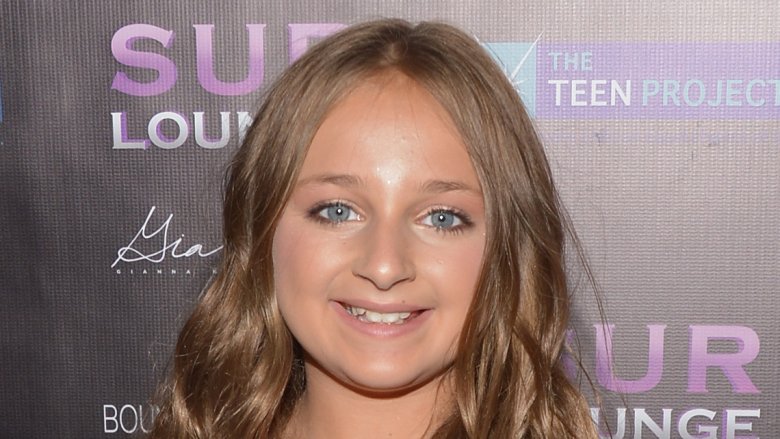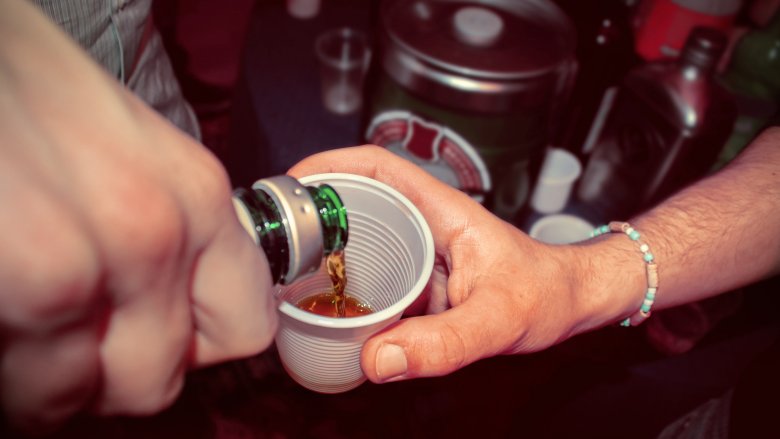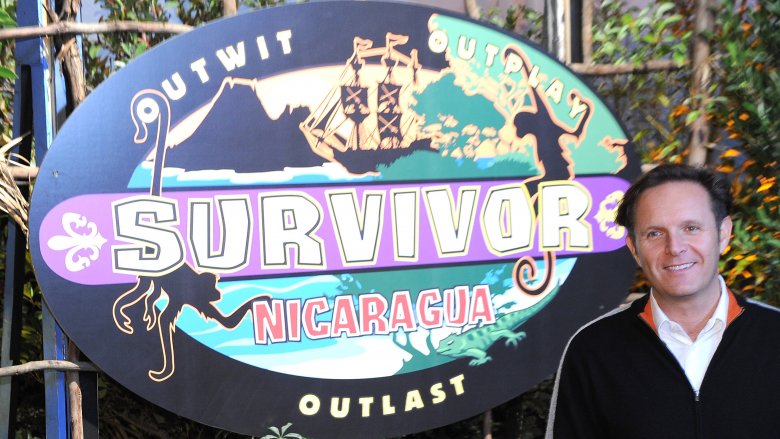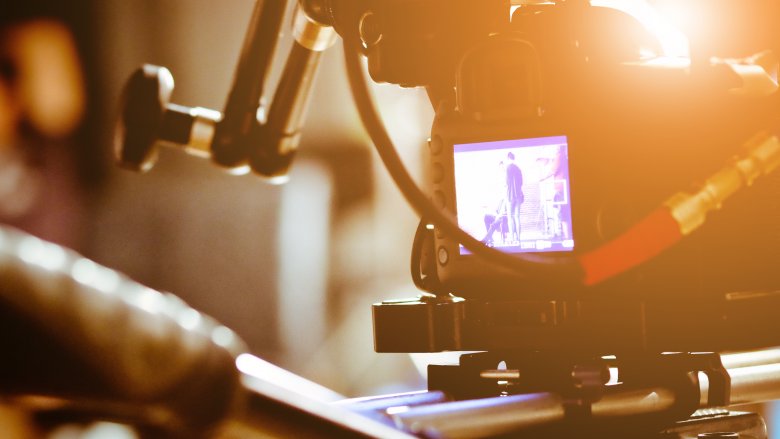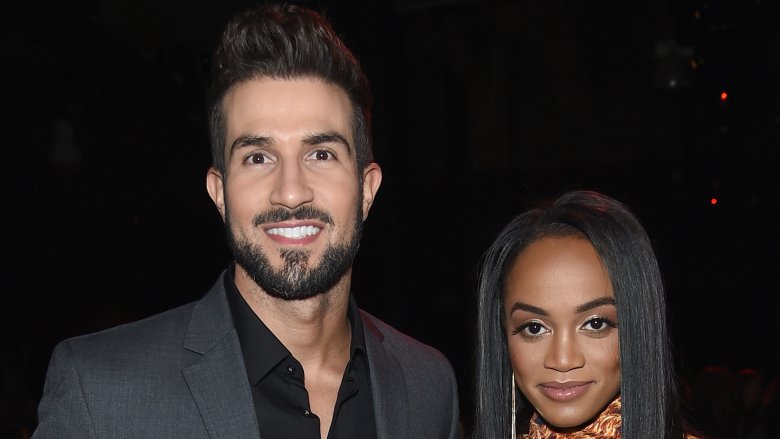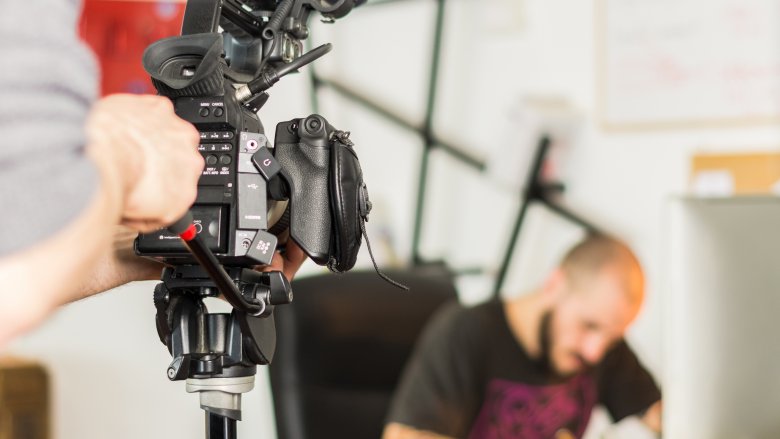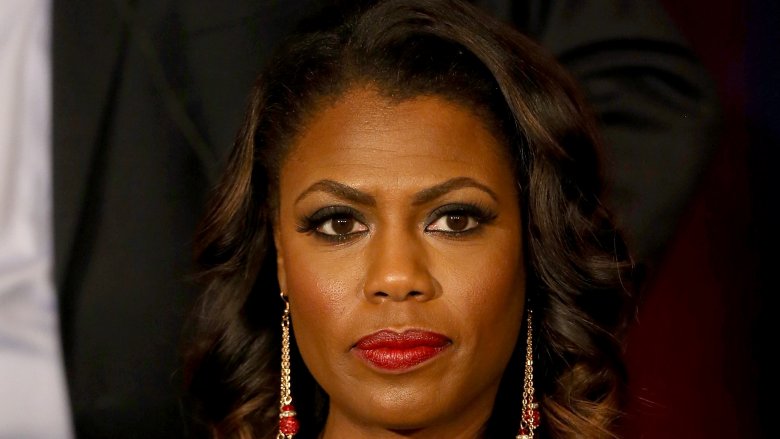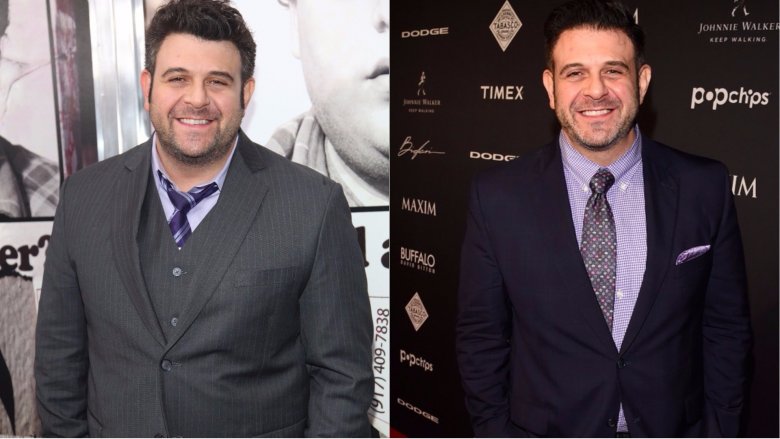Messed Up Things On Reality TV Shows No One Ever Talks About
Who knew watching other people's lives play out on TV could be so entertaining? The most popular reality shows attract millions of viewers thanks to the winning formula of drama, tears, and the occasional fist fight or two. It's pretty well known that these shows aren't as "real" as they seem. In fact, some of them are heavily scripted, but there's much more about this genre of programming that many people aren't aware of. Here are some of the messed up things on reality TV shows no one ever talks about.
Some participants don't get paid
Some people think getting cast on a reality TV show is their ticket to becoming a millionaire. But the truth is, many of the people who appear on these shows aren't even getting paid.
In an interview with Today, an insider revealed that contestants on American Idol audition and appear on camera free of charge. It isn't until a singer becomes a finalist on the hit show that they're able to earn an hourly paycheck.
A television producer told Reader's Digest, "We're always trying to get as much talent as possible while spending as little money as possible. Ninety-nine percent of the people on reality TV get their expenses covered and maybe a daily stipend of $20 or $30, but that's it."
For some, just having a little bit of exposure is enough for them to agree to appear on a program in lieu of a paycheck. The young stars on TLC's Toddler's & Tiaras, their families, and pageant organizers aren't paid a dime, according to an article with the New York Post. Despite the lack of money they receive, many of the beauty queens have been able to parlay their time on the show into multi-million dollar empires.
A contestant named Isabella Barrett banked on her popularity by starting her own fashion line and jewelry company. By the time she turned 6, she was a self-made millionaire, according to an interview she gave with How'd You Get So Rich (via The Sun).
They have to take STD tests
By the time the cast films their first scene, they've already gone through rigorous test behind the scenes to determine their eligibility. Leslie Hughes, a former contestant on the hit ABC show The Bachelor, told The Daily Beast she was subjected to "crazy" test before appearing on the program, including an STD test. The producers, according to Hughes, did so to "make sure everyone is clean."
That's not the only test those who are looking to score love on national TV must undergo. Hughes stated, "You also have to do psych testing to make sure that you're normal."
In an interview with Reader's Digest, producers shed more light on additional test that the "big shows" run on all of its stars. Background checks are also completed, you know, to make sure someone's not an axe murderer, and family and friends are thoroughly interviewed. Drug test are also conducted, and contestants must sit thorough "endless interviews" and "physical examinations" before they're given the green light.
And you thought appearing on a reality show would be easy-peasy?
They're given alcohol to loosen up
Alcohol is a known social lubricant, and everyone reacts differently after having a few drinks. There's the happy drunk, the mean drunk, the emotional drunk, etc. Reality TV producers hope to get any range of emotions out of their cast by allowing them to guzzle liquor at all hours of the day, according to Hughes' interview with The Daily Beast.
On the set of The Bachelor, Hughes said it wasn't uncommon for their house to be fully-stocked with "wine, beer, hard alcohol, and everything in between."
"It's how they get you to be more talkative, more sensitive," she stated. "When I came in for the producers' weekend, I remember it was like 12 noon, and they were like, 'You want some champagne, wine?' And I was like, 'It's 12 p.m., noon!'"
Sounds like a non-stop party to us!
Contestants are isolated
Can you imagine having absolutely no contact with anyone other than your reality TV cast mates for months on end? According to Hughes, upon entering The Bachelor mansion, each contestant had to hand over their "cellphones, computers, magazines, music, and even books," and disconnect from the modern world.
"The only things I was allowed to keep were my journal and my Bible," Hughes explained to The Daily Beast. "We have nothing. We are completely cut off from the world. We have to talk to each other—we have nothing else to do." This would be fine if you're in a house with people you actually get along with. But can you imagine being stuck with people you can't stand and not being able to get away from them? Talk about torture!
Big Brother and Survivor also isolate their contestants while filming, and since the cast is around each other 24/7, it heightens the level of drama.
Rachel Reilly appeared on Big Brother and The Amazing Race, and she told Today, "We have no communication with the outside world, so (the show) becomes your world."
They film for long hours
If you thought the measly pay (or the lack thereof) was bad enough, what if we told you some of the stars of these shows end up filming for really, really long hours?
Hughes told The Daily Beast that appearing on The Bachelor was nowhere near to being a relaxing vacation full of chilling and relaxing. The production kept a pretty tight schedule, which included "many hours of filming."
"[The first night] was very long," Hughes said. "We didn't start until 7 at night and we didn't finish until 8 in the morning!"
Perhaps Hughes had it easy after all because Reilly told a completely different story about the filming schedule for Big Brother in an interview with Today.
The voyeuristic program allows viewers to watch housemates compete to win $500,000 as cameras film the contestants non-stop. Reilly said, "There's no privacy; there's even a camera in the bathrooms."
Do some shows racially discriminate?
In 2012, a class-action lawsuit was filed against The Bachelor and The Bachelorette for racial discrimination, according to the Hollywood Reporter.
In the suit, Nashville residents, including African-American football players Nathaniel Claybrooks and Christopher Johnson, claimed the programs had not featured a person of color since The Bachelor first premiered back in 2002.
NPR revealed the lawsuit was eventually dismissed by a judge in October 2012, but Claybrooks and Johnsons' efforts weren't for naught. After 33 seasons, Rachel Lindsay was cast as the first black woman to star on The Bachelorette, and in the end, she found love and gave her final rose to contestant Bryan Abasolo.
The 'House Hunters' process was called out for being fake
Our minds were completely blown and our worlds were shattered when it was revealed that HGTV's super popular show, House Hunters, was nothing more than a farce!
The truth came to light when a woman named Bobi Jensen, who appeared on the show back in early-2006, gave an interview to the blog Hooked on Houses to spill the beans about the show's scripted ways.
In a post titled "House Hunters: What It Was Like to be on the Show," Jensen said producers found her real story about getting a bigger house and converting their old home into a rental property too "boring and overdone."
"So instead, they just wanted to emphasize how our home was too small and we needed a bigger one desperately," Jensen said. "It wasn't true, but it was a smaller house than the one we bought so I went with it."
But that wasn't all. For those who are unfamiliar — the whole concept of the show is for potential home buyers to view three houses, and in the end, they pick the home that best suits their needs. But according to Jensen, the show's producers didn't even accept her family to be on the program until they had actually closed on the home they were buying. "So then when they decided to film our episode, we had to scramble to find houses to tour and pretend we were considering," she said.
House Hunters, why must you break our hearts like this?
Participants are influenced by producers
We'd like to believe that reality stars are being their true selves at all times, but that doesn't seem to be the case on most programs.
Jillian Harris, who starred on The Bachelor and The Bachelorette, admitted she had been "manipulated" while as a contestant on the former program. She explained to Today, "[I] forgot about my 'real' life so fast. I was like experiencing a really fabulous version of Stockholm Syndrome, with fancy meals, hotels, and clothes!"
Another woman named Anna Klassen wrote a personal piece for the website Bustle and described her brief appearance on a reality show. Klassen agreed to star in the pilot of the program, even though she had no clue what the show would be about. When producers and cameramen showed up to her home, she quickly found out she wouldn't be "playing" herself.
She was allegedly told, "Ok, so here's the deal. You're on a makeover show. You've sent a tape into two life coaches asking for their help, and today they are going to show up at your apartment." She simply replied, "Okay?" and eventually got into the groove of playing a character — or a "version of myself" as she called it.
Some contestants are given a role to play
On shows that include multiple stars, you've probably noticed that each person plays a role. One person might be the sweetheart, another might be a jerk, and someone else might come across as the flirt. But if you thought the casting directors just did a terrific job in choosing people with dynamic personalities, we have some bad news for you. According to one producer, after hiring specific people, they actually tell them which role they need them to play.
In an interview with Reader's Digest, the producer stated, "I sat [the cast member] down and said, 'Listen, you were cast in this role. If you want to make good TV, if you want the series to come back and make more money next year, then you need to play along. If you don't, you're going to be cut out entirely.' It worked."
What's most troubling is the producer's admission that the woman was "the nicest lady ever," but they encouraged her to play the role of "a villain."
Speaking of villains, Omarosa Manigault-Newman was one of the first reality TV bad girls when she appeared on The Apprentice. She infamously got into numerous spats with her co-stars and became one of the most hated people on TV.
In a 2004 interview with TV Guide, Maingault-Newman attempted to break free from the way she was portrayed on the show by stating, "You have to acknowledge editing...The real Omarosa is a bright, intelligent, smart woman... She is a woman who, if you meet her on the street, she'd give you the last dollar in her pocket."
They sacrifice their bodies for the show
A reality TV star should consider themselves lucky if all they have to do is alter their personality to ensure the success of their show. Other stars actually put their bodies and their health on the line, all in the name of entertainment.
Adam Richman was the host of the first four seasons of The Travel Channel program Man v. Food. On the program, Richman traveled across the U.S. to compete in food eating challenges at various restaurants. Viewers loved to tune in and see him scarf down pizzas, ice cream sundaes, hot dogs, and any other food that was placed in front of him. But after four seasons, the competitions caught up with him, and he revealed that his extreme eating made him gain 60 pounds in an interview with People magazine. He stated, "I could see my belly, It was unflattering. It sent me into depression," according to The Daily Mail.
He was so worried about his health, he retired from the show and went on a weight loss diet. Before turning 40, Richman was able to drop the weight and reveal his new slimmed-down figure. He officially retired from food eating competitions and now eats a vegan diet, according to an interview he gave to the Independent.

